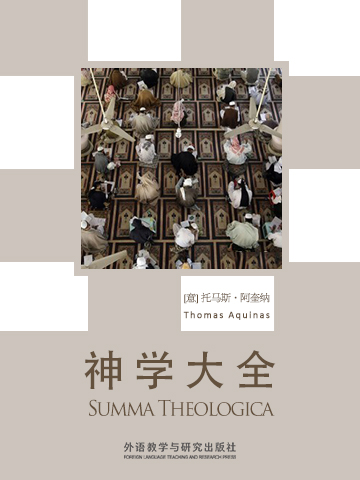这是一部神学著作,也是一部哲学著作,素有基督教“百科全书”之称。
The Summa is composed of three major parts, each of which deals with a major subsection of Christian theology.
The Summa Theologica is meant to summarize the history of the cosmos and provide an outline for the meaning of life itself.
The Summa theologiae is written in a form common to treatises of that age. All of theology is divided into its major topics. These, in turn, are divided into subtopics described by Thomas as 'questions. " The first "question" in the Summa theologiae deals with The nature of Theology itself, the second with God's existence.
托马斯在本书中提出了证明上帝存在的五个证据,还讨论到了耶稣基督,他首先讲述了圣经里亚当和夏娃的故事,并且描述人类原罪的负面结果。他提出耶稣基督化身的目的是恢复人类的本质,协助人类移除他们身上“原罪的污染”。“神圣的智慧认为上帝应该化身为人,以这个单一而相同的化身改变人们并且提供救赎”。
同时,他还批评了当时许多对耶稣基督抱持不同观点的历史神学家。他指出耶稣是真的出自神授的,而不只是一个凡人。一个异教者认为上帝只不过是寄居了耶稣的肉身,托马斯则回复道上帝的完整乃是耶稣的存在所不可或缺的一部分。
The Summa Theologiae is the best-known work of Thomas Aquinas (c. 1225–1274). Although unfinished, the Summa is "one of the classics of the history of philosophy and one of the most influential works of Western literature." It was intended as an instructional guide for theology students, including seminarians and the literate laity. It was a compendium of all of the main theological teachings of the Catholic Church. It presents the reasoning for almost all points of Christian theology in the West. The Summa's topics follow a cycle: the existence of God; Creation, Man; Man's purpose; Christ; the Sacraments; and back to God.
- Question. 1
- Question. 2
- Question. 3
- Question. 4
- Question. 5
- Question. 6
- Question. 7
- Question. 8
- Question. 9
- Question. 10
- Question. 11
- Question. 12
- Question. 13
- Question. 14
- Question. 15
- Question. 16
- Question. 17
- Question. 18
- Question. 19
- Question. 20
- Question. 21
- Question. 22
- 书评 写书评
- 笔记
-
书评加载中...























 京公网安备 11010802032529号
京公网安备 11010802032529号
笔记加载中...